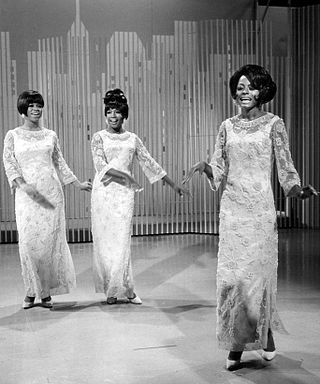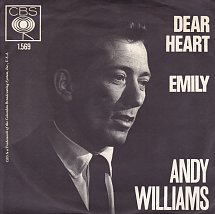Related Research Articles

Animotion is an American synth-pop band from Los Angeles, California, best known for the songs "Obsession", "Let Him Go", "I Engineer", and "Room to Move". Formed in 1983 from the remnants of a retro science-fiction band called Red Zone, they signed a record deal with Mercury Records in 1984 and released four studio albums.

American girl group The Supremes has released 29 studio albums, four live albums, two soundtrack albums, 32 compilation albums, four box sets, 66 singles and three promotional singles. The Supremes are the most successful American group of all time, and the 26th greatest artist of all time on the US Billboard charts; with 12 number-one songs on the Billboard Hot 100 and three number-one albums on the Billboard 200. The Supremes were the first artist to accumulate five consecutive number-one singles on the US Hot 100 and the first female group to top the Billboard 200 albums chart with The Supremes A' Go-Go (1966). In 2017, Billboard ranked The Supremes as the number-one girl group of all time, publishing, 'although there have been many girl group smashes in the decades since the Supremes ruled the Billboard charts, no collective has yet to challenge their, for lack of a better word, supremacy.' In 2019, the UK Official Charts Company placed 7 Supremes songs—"You Can't Hurry Love" (16), "Baby Love" (23), "Stop! In the Name of Love" (56), "Where Did Our Love Go?" (59), "You Keep Me Hangin' On" (78), "Come See About Me" (94) and "Stoned Love" (99)—on The Official Top 100 Motown songs of the Millennium chart, which ranks Motown releases by their all-time UK downloads and streams.

"Blurry" is a song by American rock band Puddle of Mudd. It was released on October 16, 2001, as the second single from the band's debut album Come Clean (2001). It was 2002's most successful rock song in the United States, topping the Billboard Mainstream Rock and Modern Rock Tracks charts as well as their year-end listings. "Blurry" also found success outside the US, reaching the top 20 in Ireland, New Zealand, and the United Kingdom.
Big Ones is a compilation album by American rock band Aerosmith, released on November 1, 1994 by Geffen Records. Big Ones features 12 hits from the band's three consecutive multi-platinum albums, Permanent Vacation (1987), Pump (1989), and Get a Grip (1993), as well as the hit "Deuces Are Wild" from the compilation The Beavis and Butt-Head Experience (1993), and two new songs, "Blind Man" and "Walk on Water", which were recorded during a break in the band's Get a Grip Tour. These songs were also included on the band's 2001 compilation album, Young Lust: The Aerosmith Anthology. Big Ones is the band's second best-selling compilation album, reaching #6 on the Billboard charts, and selling four million copies in the United States alone. The album quickly became a worldwide hit reaching the Top 10 in nine countries before the end of the year.

"Obsession" is a 1983 song by Holly Knight and Michael Des Barres, covered in 1984 by American synth-pop band Animotion. The song hit number six in the United States, and number five in the United Kingdom in June 1985, helped by a distinctive video that MTV played frequently. "Obsession" also hit the top 40 on the US dance chart, twice: once in 1984 ; then in 1986, as a double-sided hit, along with the track "I Engineer".

"Get It On" is a song by the English rock band T. Rex, featured on their 1971 album Electric Warrior. Written by frontman Marc Bolan, "Get It On" was the second chart-topper for T. Rex on the UK Singles Chart. In the United States, it was retitled "Bang a Gong (Get It On)" to avoid confusion with a song of the same name by the group Chase.

The discography of American alternative rock band Pearl Jam, consists of 12 studio albums, 23 live albums, 3 compilation albums, 46 singles, and numerous official bootlegs.
"Hippy Hippy Shake" is a song written and recorded by Chan Romero in 1959. That same year, it reached No. 3 in Australia. Romero was 17 years old when he wrote the song.

"Let Your Love Flow" is the debut single by country music duo the Bellamy Brothers, recorded in late 1975 and released in January 1976. The song was written by Larry E. Williams and produced by Phil Gernhard and Tony Scotti. It became an international hit, reaching number one in several countries including the United States and Germany, while reaching the top ten in at least nine others including the United Kingdom and Australia.

"Going in Circles" is a song written by Jerry Peters and Anita Poree, and originally performed by The Friends of Distinction on their 1969 album Grazin', reaching number 15 on the U.S. Hot 100, and number three on the R&B chart. The song has since been covered numerous times by other artists, including Isaac Hayes and Luther Vandross. In addition, the song's co-composer, Jerry Peters released his own version of the tune on his 1972 solo album Blueprint for Discovery. The Friends of Distinction's original version is an R.I.A.A. Certified Million-Seller.

"Let's Go All the Way" is a song by American musical group Sly Fox. Released as a single in 1985 from their debut studio album of the same name, the record became a sleeper hit, entering the top 10 of the singles charts in both the US and the UK the following year. Despite receiving considerable commercial and critical success, the group failed to match expectations with their later singles, and are sometimes referred to as a one-hit wonder. Original MTV veejay Martha Quinn has described "Let's Go All the Way" as "one of the funkiest songs ever".

"Run to Me" is a song by the Bee Gees, the lead single from the group's album To Whom It May Concern (1972). The song reached the UK Top 10 and the US Top 20.

American country music artist Chely Wright has released eight studio albums, three compilation albums, one video album, four extended plays, 24 singles, 18 music videos, and appeared on six albums. Wright first issued two unsuccessful studio albums under Polydor Records: Woman in the Moon (1994) and Right in the Middle of It (1996). Both albums were critically acclaimed despite their lack of success. Her third studio album Let Me In (1997) reached number 25 on the Billboard Top Country Albums chart and spawned the hit single "Shut Up and Drive". It was Wright's fourth studio album that brought forth her biggest success, Single White Female. Released in May 1999, it reached number 15 on the country albums chart, number 124 on the Billboard 200, and certified gold from the Recording Industry Association of America. The title track reached the top of the Billboard Hot Country Songs chart in 1999 and was followed by the top 20 hit "It Was".

"Never Gonna Let You Go" is a popular song from 1982, written by the husband-and-wife songwriting team of Cynthia Weil and Barry Mann. Weil wrote the lyrics, while Mann wrote the music. It was first recorded by Dionne Warwick for her 1982 album Friends in Love, and then by singer Stevie Woods for his 1982 album The Woman in My Life. Its best known rendition is by Brazilian bandleader Sérgio Mendes, on his 1983 self-titled album, sung by Joe Pizzulo and Leeza Miller.

The discography of American pop singer Donny Osmond contains 18 studio albums, nine compilation albums, one live album, four video albums, three extended plays, four music videos, 25 singles, and eight additional appearances. After several years collaborating with his siblings' band, The Osmonds, he embarked on a solo career in 1971. His debut single, "Sweet and Innocent," reached number seven on the Billboard Hot 100 and made him a teen pop star. Its follow-up entitled "Go Away Little Girl" topped the same chart in 1971. Also in 1971 his debut studio album was released called The Donny Osmond Album. It peaked at number 13 on the Billboard 200 all-genre chart. His third studio release, Portrait of Donny, reached number six on the Billboard 200 and is his highest-charting album to date. Its two singles became top ten hits on the pop chart: "Hey Girl" and "Puppy Love." He released his fourth studio effort in 1972, Too Young. The record peaked at number 11 on the Billboard 200. It spawned the top 20 pop hits: the title track and "Why." In 1973, Alone Together marked his fifth studio album release and peaked at number 26 in the United States. It spawned his cover of "The Twelfth of Never," which reached number eight on the Hot 100. By the mid-1970s, Osmond reached adulthood and his career began to decline despite collaborations with his sister, Marie Osmond. In 1976, he recorded an album of disco, which only reached number 145 on the Billboard 200.

Turn on Your Radio is the sixth studio album by the Italian/U.S. ensemble Change. It was released in 1985 and reached number sixty-four on the US Billboard Black Albums chart, and number thirty-nine on the UK Albums Chart. Turn on Your Radio includes the singles "Let's Go Together", "Examination", "Oh What A Feeling" and "Mutual Attraction".

The discography of Eric B. & Rakim, an American hip hop duo, consists of four studio albums, five compilation albums, 15 singles, and nine music videos. Eric B. & Rakim formed and signed a record deal with Zakia Records in 1985. The following year, the duo signed a deal with 4th & B'way Records. Their debut album Paid in Full was released in 1987. In the United States, it peaked at number 58 on the Billboard 200, number 8 on R&B/Hip-Hop Albums, and was certified platinum by the Recording Industry Association of America (RIAA). It appeared on the Dutch, New Zealand, and UK Albums Chart. Paid in Full produced five singles, four of which appeared on Hot R&B/Hip-Hop Songs. The fifth single "Paid in Full" (1988) peaked in the top five of the Dutch and New Zealand Singles Chart.

Animotion is the self-titled debut album from Los Angeles synthpop sextet Animotion. It was released in 1984 on Mercury Records and features the group's biggest hit single, "Obsession".

"Dear Heart" is a song written by Henry Mancini, Ray Evans, and Jay Livingston and performed by Andy Williams. It appears on the 1965 Andy Williams album, Andy Williams' Dear Heart. The song was the theme to the 1964 movie Dear Heart. It was nominated for the Academy Award for Best Original Song and also nominated for best song at the 22nd Golden Globe Awards.

The discography of American pop duo Donny and Marie Osmond contains seven studio albums, four compilation albums, one soundtrack album, one live album and 12 singles. Both siblings had previously had successful solo music careers before first collaborating in 1974; Donny was also a member of his brothers' band, The Osmonds. Their first single, "I'm Leaving It Up to You," reached number four on the Billboard Hot 100. Their corresponding debut album of the same name peaked at number 35 on the Billboard 200 chart in November 1974. The release certified gold in the United States for sales beyond 500,000 copies. Together, the duo had two more hits that reached both the top ten and 20 of the Hot 100: "Deep Purple" and "Morning Side of the Mountain."
References
- ↑ "45cat - Animotion - Let Him Go / Holding You (US Release)". 45cat.com. Retrieved December 21, 2020.
- ↑ "Billboard". 25 May 1985.
- 1 2 "The Hot 100 Chart (Week of July 27, 1985)". Billboard.com. Retrieved December 21, 2020.
- ↑ Stephen Thomas Erlewine. "Animotion | Biography and History | Allmusic". Allmusic.com . Retrieved December 21, 2020.
- 1 2 "Official German Charts - Animotion - Let Him Go". Offiziellecharts.de. Retrieved December 21, 2020.
- 1 2 "ANIMOTION | full Official Chart History | Official Charts Company". Officialcharts.com. Retrieved December 21, 2020.
- ↑ "20th Century Masters: The Best of Animotion". Allmusic.com . Retrieved December 21, 2020.